Welcome Service Region Stuttgart
We help international professionals and students to settle in the region – at the Welcome Center Stuttgart, at our consultation hours in Böblingen, Esslingen, Waiblingen, Göppingen and Ludwigsburg, or by telephone or e-mail!
We support companies in recruiting and integrating foreign professionals.
Take advantage of our free consultation service, we look forward to hearing from you and will be happy to help!
Our services for
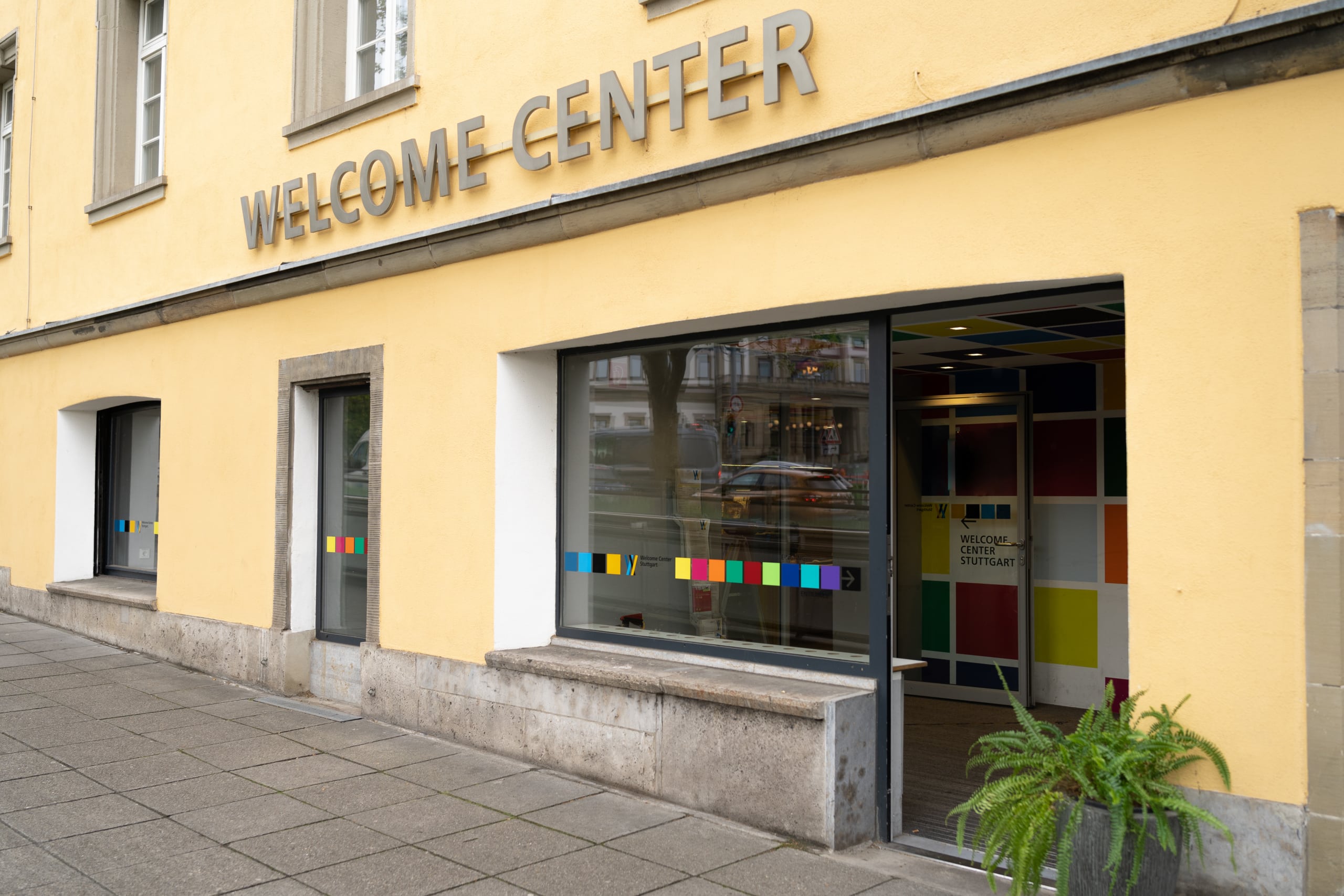 © ebruli fotografie
© ebruli fotografie
Welcome Center Stuttgart
Are you new to the Stuttgart Region and would like personal advice? Come to the Welcome Center Stuttgart, the joint advice center of the Stuttgart Region Economic Development Corporation (with the Welcome Service Region Stuttgart) and the City of Stuttgart.
We advise international professionals and new citizens about arriving, living and working in the Stuttgart Region.
Events
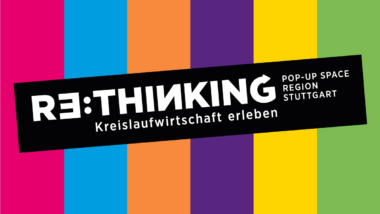
RE:THINKING – Kreislaufwirtschaft erleben
Das Pop-up Space für die Region Stuttgart vom 15. Mai bis 31. Juli 2025 - Königstraße 1A in Stuttgart
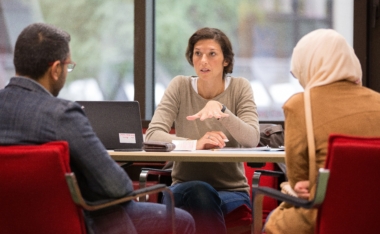
Sprechstunde des Welcome Service Region Stuttgart in Ludwigsburg
Beratung für internationale Fachkräfte, Studierende und Unternehmen der Region Stuttgart

HR-Business-Frühstück: Potenziale von älteren Mitarbeitenden erkennen und nutzen
Beschäftigte 50plus stellen in immer mehr Unternehmen die größte Altersgruppe dar. Welche Bedürfnisse haben diese Mitarbeitenden in der zweiten Karrierehälfte? ...
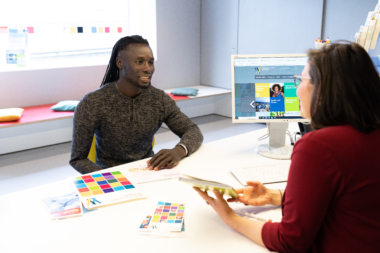
Sprechstunde des Welcome Service Region Stuttgart im Rems-Murr-Kreis
Beratung für internationale Fachkräfte, Studierende und Unternehmen der Region Stuttgart

Deutsch lernen: geförderte Programme im Bereich Spracherwerb am Arbeitsplatz
Online-Veranstaltungsreihe der Welcome Center Baden-Württemberg: Internationale Fachkräfte beschäftigen

Veranstaltung für Unternehmen: Fachkräfte & Auszubildende aus Indien
Potentiale, Strategien und Möglichkeiten
News

Sommer in der Region Stuttgart: Musik, Filme und Vielfalt unter freiem Himmel
Summer in the Stuttgart Region: Music, Movies and Diversity in the Open Air
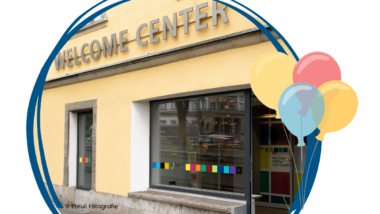
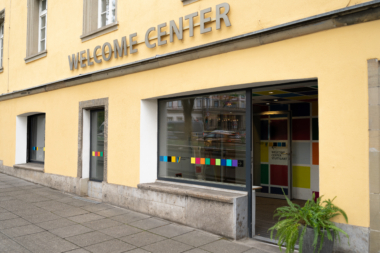

RE:THINKING – Kreislaufwirtschaft erleben
Das Pop-up Space für die Region Stuttgart vom 15. Mai bis 31. Juli 2025 - Königstraße 1A in Stuttgart

Sommer in der Region Stuttgart: Musik, Filme und Vielfalt unter freiem Himmel
Summer in the Stuttgart Region: Music, Movies and Diversity in the Open Air

Sprechstunde des Welcome Service Region Stuttgart in Ludwigsburg
Beratung für internationale Fachkräfte, Studierende und Unternehmen der Region Stuttgart


HR-Business-Frühstück: Potenziale von älteren Mitarbeitenden erkennen und nutzen
Beschäftigte 50plus stellen in immer mehr Unternehmen die größte Altersgruppe dar. Welche Bedürfnisse haben diese Mitarbeitenden in der zweiten Karrierehälfte? ...

 © contrastwerkstatt – Fotolia
© contrastwerkstatt – Fotolia
Job search
Are you looking for an internship, a position for your thesis or are you looking for the right company to work for?
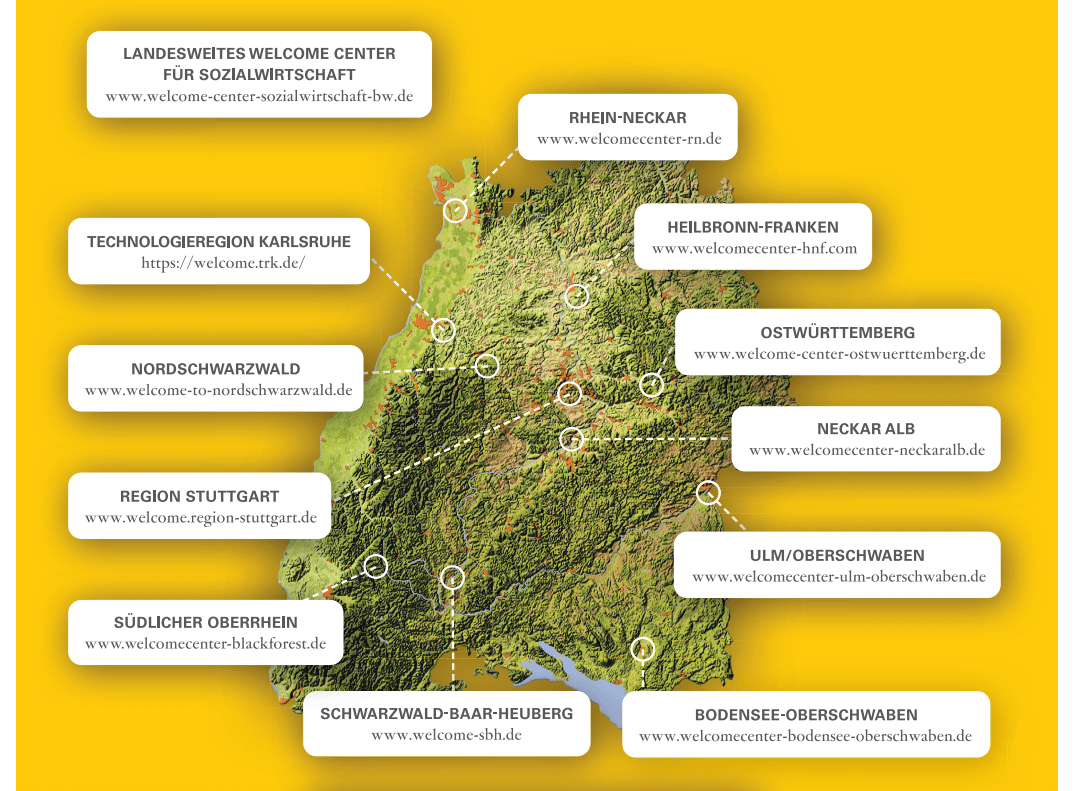 © Arid Ocean – stock.adobe.com / Wirtschaftsministerium
© Arid Ocean – stock.adobe.com / Wirtschaftsministerium
Welcome Centers in Baden-Württemberg
The Ministry of Economy, Labor and Tourism has been supporting the establishment of Welcome Centers in Baden-Württemberg since 2014.
There are currently twelve Welcome Centers in Baden-Württemberg working together across the state – eleven Welcome Centers for all professions and sectors and one Welcome Center for the social economy (for professionals in the fields of care, health and education).
Please contact the Welcome Center in your region or district you are living or willing to work.
Sponsors and supporters
The Welcome Service Region Stuttgart is offered by Stuttgart Region Economic Development Corporation (WRS), funded by the Ministry of Economy, Labor and Tourism Baden-Württemberg.
The WRS is part of the Skilled Professional Alliance Stuttgart Region. We develop our offers in close cooperation with the partners of the Alliance.



